Pre-Construction Consultation Fee
Mica Moore
5 years ago
last modified: 5 years ago
Featured Answer
Comments (90)
S MacD
5 years agoRelated Discussions
Have you used a construction consultant?
Comments (10)We were in the same boat. I work for a commercial contractor as a PM so have experience but not really with residential work and I really didn't have the time. We are adding approx 3,200 sf onto our existing home (while we are living in it) We designed our home ourselves and paid an engineer to design the roof beams since we were over the allowed length without a PE stamp. We wanted to have someone manage the entire project for us - we got pricing from (2) GC's to do the whole package and the cost was WAY over our budget. So we thought we would just pay someone to manage getting it under roof and dried in that to was a LOT of money (+/-) $50g. So being the price conscious people we are we decided to GC ourselves. We are currently dried in all windows and shingles installed and starting interior rough in's. It has been very time consuming and we have did some things wrong - but we saved a ton of money ans feel that it was WELL worth it. I would recommend maybe tying to hire a retired superintendent or paying someone for a couple hours of consulting on an as needed basis. If you don't know anyone you may try to local ABC - Associated Building Contractors association - they may be able to point you in the right direction. Also, if you hire good subs that will make things go a lot smoother. My one suggestion (lesson learned) would be have everything decided upon before you start. We started footings the first weekend of November - so have gotten a long ways in 2 months but now are at a lull with roughin's until we finalize the mechanical units we want, and finalize the lighting / power plan, and all plumbing fixtures are selected. We had ideas on all of these items but hadn't pinned down and made 100% decisions on anything and now it is impacting the schedule. We will probably loose 1 to 2 weeks of rough in time because we were not ready. But you will have that. All in all the months of headache will translate into added equity when your home is complete. (at least that is what we keep telling ourselves...Hope to post some pics on my page soon of our "baby...")...See MoreGC as Ownerbuilder Consultant + Sample Contract
Comments (1)cut & paste or bookmark! Keep this handy!...See MoreGarage Floorplan Review (new plan after GC consult)
Comments (17)So all the other people that use this forum to tweak plans because if they let their architect do it it would cost them every time they redid the plans are lying? There are thousands of ways to do a garage apartment on my lot. I'm merely limiting the number before I pay for my architect to draw up dozens of plans that I don't care for. Isn't that why it's recommended to look at online plans first? To get an idea of what you want and what you would change? I don't think the time I've put into this has been a waste of time or a worry. I've changed my mind quite a bit over the process and each time having the architect redraw my changes would have cost me. What I don't understand is why you assume that my contractor is "obviously unknowledgeable". Because I didn't mention in my first post that he said my plan would need a lot of work and that I would need a professional involved? That's my fault and it's obvious that I didn't make that clear in my second post. It's unknowledgeable that he thought I should have a general number of what this will cost me before I dive deeper in? It's unknowledgable that we should make sure that my specific subdivision will allow this unique build before I have an architect draw up something that isn't going to be allowed? As far as the city issues go, perhaps it's just because I live in a smaller city and in an older subdivision, but it was a little more in depth than just looking up some zoning code. City planning had to rule on a decision, not just look something up in a book. I guess I didn't make it clear enough in the first post, but there is a rough design for the rest of the house. I only posted the garage section. Perhaps I shouldn't post anymore on this site. I was looking for general floorplan advice rather than have negative assumptions made about my GC. I do appreciate all the advice I've received across my threads. I know that their help in tweaking/changing my designs to something more efficient saved me quite a bit in architect costs, even if it took up more of my personal time. I've heard too many horror stories of additional architect fees to be able to dismiss all of them....See MoreChoosing a Designer: Fee Upfront or No Fee?
Comments (47)You've been watching too much HGTV. Your expectations aren't realistic. No one does free work. If you do, then let us know where you work and you'll do a lot more of that. You doing some of the work, or hiring some of the trades, leaves you as the responsible party for coordinating everything. YOU are acting as the GC on the job. You may not realize that it will be up to you to catch all of the ''gotcha'', but that's what role you've taken on by trying to piece the job out. Demo is the worst thing to even think about DIYing unless you are extremely experienced. It ain't sledgehammer fun like TV shows. I guarantee you will end up with leaking shut off valves, because no one ever maintains them. If you don't know how to deal with a mini flood in the kitchen, you are beyond over your head in this project. You need to stop. You're wasting a bunch of people's time. Start wasting your own time. If you're gonna be the GC on the job and can't do a measured layout to twiddle around with, then you aren't ready to do a kitchen project. If you don't understand the (massive) electrical requirements that a new kitchen has, then you are not ready to move forward. If you do not understand how and when to design a properly supported overhang in stone, you are not ready to move forward. If you do not understand the proper support and substrate, and layout pattern of tile, and how to not tile in your appliances, then you are not ready to move forward. If you don't understand the chicken and egg conundrum of timing for a construction project, then you are not ready to move forward. Or, double your budget and hire a KD who works directly with a contractor. Or a design build firm. But, if you can't even develop enough trust with a good KD, then you need to go back to the drawing board for the entire project. It's doomed. You either have to man up and do ALL OF THE WORK, including design, or let go and trust....See Morekazmom
5 years agoS MacD
5 years agolast modified: 5 years agoMary Leeth
5 years agoMary Leeth
5 years agoS MacD
5 years agoKristin Petro Interiors, Inc.
5 years agoVirgil Carter Fine Art
5 years agoJoseph Corlett, LLC
5 years agoUser
5 years agolast modified: 5 years agoUser
5 years agolast modified: 5 years agoMica Moore
5 years agoHelen
5 years agoUser
5 years agobry911
5 years agolast modified: 5 years agobry911
5 years agolast modified: 5 years agoHelen
5 years agobry911
5 years agoUser
5 years agolast modified: 5 years agoUser
5 years agolast modified: 5 years agoGN Builders L.L.C
5 years ago_sophiewheeler
5 years agolast modified: 5 years agoVirgil Carter Fine Art
5 years agoGN Builders L.L.C
5 years agoUser
5 years agoVirgil Carter Fine Art
5 years agobry911
5 years agolast modified: 5 years agobry911
5 years agolast modified: 5 years agoUser
5 years agolast modified: 5 years agoVirgil Carter Fine Art
5 years agoVirgil Carter Fine Art
5 years agoMica Moore
5 years agolast modified: 5 years agoUser
5 years agolast modified: 5 years agoVirgil Carter Fine Art
5 years agobry911
5 years agolast modified: 5 years agoMica Moore
5 years ago_sophiewheeler
5 years agoUser
5 years agolast modified: 5 years agoMica Moore
5 years agolast modified: 5 years agoVirgil Carter Fine Art
5 years agoUser
5 years agolast modified: 5 years agoUser
5 years agolast modified: 5 years agoVirgil Carter Fine Art
5 years ago_sophiewheeler
5 years agolast modified: 5 years agoUser
5 years agoAlyessa Andreeva Interior Design
last yearGN Builders L.L.C
last year
Related Stories

WORKING WITH PROSHow to Hire the Right Architect: Comparing Fees
Learn common fee structures architects use and why you might choose one over another
Full Story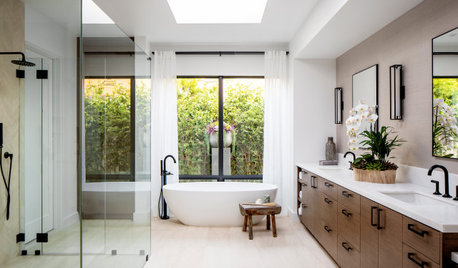
DATA WATCHBusiness Is Back to Pre-Pandemic Levels for Home Remodeling Firms
With strong demand for their services, most firms have a positive outlook, the Q4 2020 Houzz Renovation Barometer shows
Full Story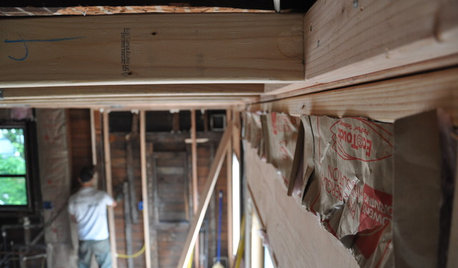
REMODELING GUIDESContractor Fees, Demystified
Learn what a contractor’s markups cover — and why they’re worth it
Full Story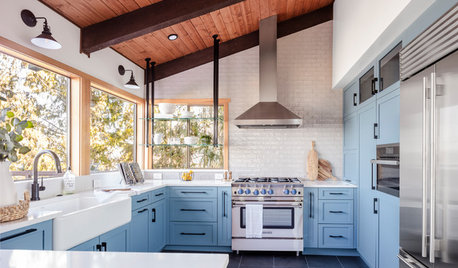
DATA WATCHHome Remodeling Is Back to Pre-Pandemic Levels
Homeowners are contacting pros and embarking on projects to improve their homes, Houzz research shows
Full Story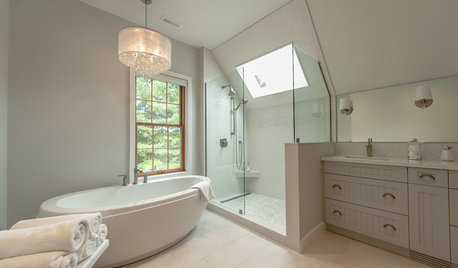
PRO TIPSTo Charge or Not to Charge for Consultations
Our community shares insights on handling initial consultations
Full Story
WORKING WITH PROSYour Guide to a Smooth-Running Construction Project
Find out how to save time, money and your sanity when building new or remodeling
Full Story
BUDGETING YOUR PROJECTConstruction Contracts: What Are General Conditions?
Here’s what you should know about these behind-the-scenes costs and why your contractor bills for them
Full Story
CONTRACTOR TIPSLearn the Lingo of Construction Project Costs
Estimates, bids, ballparks. Know the options and how they’re calculated to get the most accurate project price possible
Full Story
BUDGETING YOUR PROJECTDesign Workshop: Is a Phased Construction Project Right for You?
Breaking up your remodel or custom home project has benefits and disadvantages. See if it’s right for you
Full Story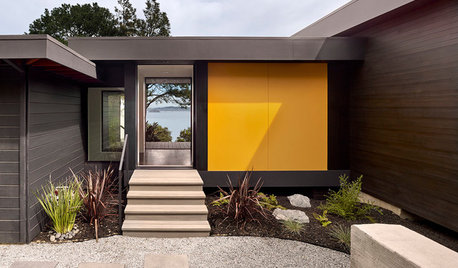
BUDGETING YOUR PROJECTConstruction Contracts: What to Know About Estimates vs. Bids
Understanding how contractors bill for services can help you keep costs down and your project on track
Full Story


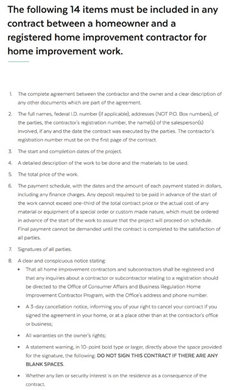



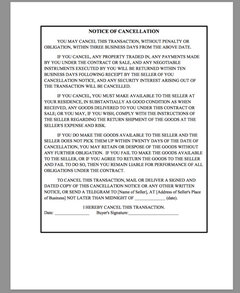



geoffrey_b